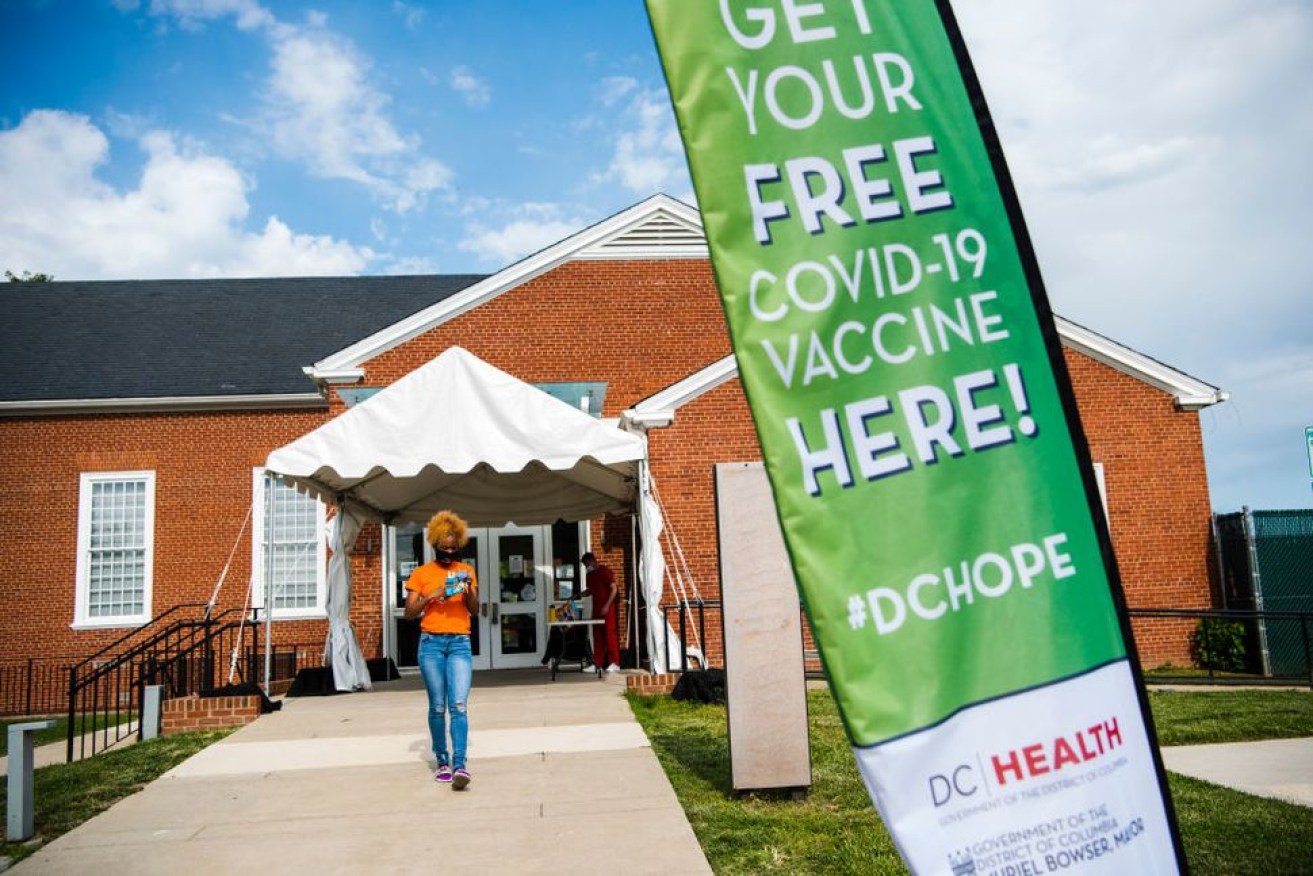What can the rest of the world teach us about getting to an 80 per cent vax rate?
It’s a benchmark that few countries have reached but not through lack of trying. Robert MacDonald looks as some of the lessons for Australia.


American states are offering incentives from beers to hunting licences to encourage full vaccination (Image: Washington Post)
Australia’s COVID-19 vaccination target is 80 per cent of the adult population.
What will it take to get there? We’re currently at about 45 per cent – counting first and second jabs – dozens down the global rankings.
What can the countries at the top of the list teach us?
The first is getting to 80 per cent is hard work. Less than a handful of countries have so far reached the mark.
Gibraltar leads the world, with a vaccination rate of well over 100 per cent, because it’s also been vaccinating day workers from Spain.
It has the advantage of being tiny, with a population of barely 30,000 – small enough for the authorities to contact every eligible person to arrange an appointment time, which, when set, couldn’t be broken.
Gibraltar is also a British overseas protectorate, which meant a secure and early supply of vaccine.
So, not much for Australia to learn from Gibraltar.
Nine of the top 15 most-successful countries are islands, which, on the face of it might sound promising. But they’re all small islands, with small populations, from, Malta and Pitcairn Island to the Seychelles and Nauru.
Again, not much help for Australia.
The United Arab Emirates, with a vaccination rate of just over 80 per cent and a population of about 9 million, is the largest country in the top five rankings.
The key to its success?
The Director-General, of the UAE’s National Emergency Crisis and Disasters Management Authority Obaid Rashid Hassan Al Shamsi, says this:
“The campaign’s success is the outcome of the vision of the country’s leadership, which is keen to facilitate the provision of the vaccine to all segments of the community in record time.”
In other words, the UAE’s leaders, unlike Australia’s, did indeed see the vaccine rollout as a race.
It recognised the economic benefits in striving for herd immunity as soon as possible. The country says its vaccination success has already drawn back foreigners who fled the UAE at the start of the pandemic.
It also saw an opportunity to diversify its industry beyond oil production.
In May this year, the UAE became to first Arab country to make its own COVID-19 vaccine, following a deal with China’s Sinopharm, and is now looking to provide its vaccine-making skills to other countries.
Canada, with more than 70 per cent of its adult population fully or partly vaccinated, is perhaps the closest comparison for Australia.
Canada moved early and successfully to sign up vaccine sources, so much so it faced accusations of hoarding, with one report saying it secured enough doses to cover each citizen five-times over.
It also has a national healthcare system, which was able to quickly distribute the vaccine right across the country.
But Canada is now facing a challenge bred by its very success. Demand for vaccinations is slowing down.
Authorities are now grappling with how to keep boosting vaccination levels to protect against the ever-present threat of new variants.
“We’re in a very difficult stage of apathy, where people don’t think they’re at risk,” pharmacy professor Kelly Grindrod told the Canadian Broadcasting Corporation.
“But … there’s a real concern that if you wait until the numbers go up to get vaccinated, it’s too late.”
Grindrod noted that in countries with high vaccine uptake, new infection waves were largely hitting unvaccinated populations.
The big question is how to convince the unconvinced, the apathetic or the downright contrary to get a jab?
The world figures suggest that getting to 60 or 70 per cent of the population is the easy part, once you’ve worked out your logistics.
One answer is mandates. Indonesia became the first and, I believe, still the only country to make inoculations compulsory in February, with fines of up to $500.
No other country has yet, as far as I can tell, followed suit. But more and more are requiring classes of residents to get vaccinated – from health and service workers prison guards.
US states are increasingly requiring public servants to be vaccinated or face weekly testing.
Some countries, such as France, are requiring proof of vaccination or recent testing to enter restaurants and theatres and for domestic travel.
Companies, both here in Australia and overseas, have also announced plans make vaccines compulsory for all staff. The legality of some of these proposals is still to be tested.
Another option is inducements, of the $300 a shot variety as proposed by Opposition leader Anthony Albanese.
It’s hard to know if such bribes actually work but if the Australian authorities are looking for inspiration, the US has plenty to offer.
Would dinner with Prime Minister Scott Morrison prompt anyone to get a jab? Who knows, but dinner with the governor was one of the ideas New Jersey came up with for its pro-vaccination campaign.
Or what about free hunting and fishing licences? That’s one of the temptations cooked up by Maine.
West Virginia’s gone even better offering not only five lifetime hunting and fishing permits but also “two custom-outfitted trucks” and “10 custom hunting guns”.
But it’s Utah that offers perhaps the best incentive of all – not dying.
As Utah Governor Spencer Cox told local radio:
“It would be really great if we didn’t need any incentives at all.
“Hopefully not dying is a great incentive so we’ll continue to push those incentives for people and hopefully they’ll respond.”












